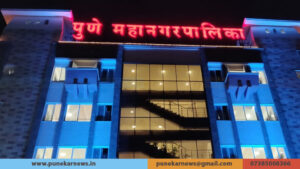CII Pune organises Excellence Manufacturing Conclave
CII Pune organised the Conference on 2nd Edition of CII Excellence Manufacturing Conclave today in Pune. The summit sessions brought forth learnings from top executives and successful organizations that use Manufacturing Excellence as a differentiator.
Mr Ram Shinde, Minister of Water Conservation & Protocol, Govt of Maharashtra; Mr Abhay M Pendse, Co-Convenor, Forum on Operational Excellence & Vice President & Head – Shindewadi works , Godrej and Boyce Mfg. Co. Ltd; Mr Alakesh Roy, Convenor, CII Forum of Operational Excellence & Managing Director, Zamil Steel Buildings India Pvt Ltd; Mr Viren Joshi, Vice Chairman, CII Pune Zonal Council & CEO & President, Sigma Electric Manufacturing Corp. Pvt Ltd; Mr Nitin Chalke, Chairman, CII Pune Zonal Council & Managing Director India, Eaton and Mr Atul Narkhede, CEO, Great Software Laboratory were present for the Inaugural session.
A report was released on “Data Driven Manufacturing” during the conference.
India is expected to be the 5th largest manufacturing country in the world by 2020. While India is becoming the most attractive destination for FDI; a Data-Driven Digital Revolution is parallelly creating the need for robust and sophisticated analytics tools to gain insights that can improve not only operational performance but also create new business/market opportunities.
The analogy above applies to every industry which intends to use digital data and systems. Data is an asset that lives and flows in one’s organizational ecosystem and does not require importing data from external systems (value chain).
Organizations have historically managed several assets such as plants, equipment’s, machines, inventory, cash and intellectual property for their competitive advantage. In today’s digital world, Data is also an asset, more readily available and easily gathered than ever before. Data manifests itself in different ways at every step of the manufacturing value chain. The new Data-Driven Digital landscape would provide organizations with the ability to capture and track data at all touch points of the value chain, helping businesses explore and identify new opportunities for enhanced decision making.
The recent CII-GS Lab research assesses the Digital Maturity of the Manufacturing Industry for ‘Data-Driven decision making.’ The study highlights that 83% of the industry is gearing up to reach ‘The Tipping Point’ for increasing their digital footprint to achieve higher efficiency and throughput. As of today, the industry is coping up with low data and process digitization – thus limiting their use of digital technology to drive operational excellence. Certain misconceptions like implementing a Data-Driven approach is a lengthy and complicated process, Data-Driven solutions can come only at high costs, digital transformation is associated with Big Data, etc.; came to light through our study.
The study also helps discover ‘Digital Leaders’,5% of the industry who are quantifiably outperforming with the help of data and digital technologies to achieve Data Monetization. Higher organizational behavior (strong leadership to strategize and manage digital roadmap) has helped the ‘Digital Leaders’ take a proactive approach towards Data-Driven decision making.
This study guides an organization through a systematic journey, along with a quantifiable ‘Digital Advancement’ score to help businesses benchmark themselves to determine where they stand in the digital transformation journey.
The study highlights, that although Data Digitization is on an average 51%, Process Digitization across organizations averaged at, an even lower value of 31%. However, this is a natural outcome of the low level of Data Digitization. The Indian manufacturing industry needs to gear up by overcoming some of the common challenges like data stored in siloes; lack of historical data analysis for identifying trends and patterns; underutilization of investment in ERP; Inability to measure key parameters digitally to name a few.
The Government of India as a part of ‘Make in India’ harbors an ambitious goal of increasing the contribution of manufacturing industry to its GDP from 16% to 25% by 2020.For the success of these ambitions, it is imperative that Indian Manufacturing organizations implement the Digital Transformation programs successfully. The study provides a concrete roadmap for organizations to make Digital Transformation a practical, easy to understand the journey and a locally developed approach to enhancing competitiveness.
The Conference was well attended by 130 participants across the industry.





